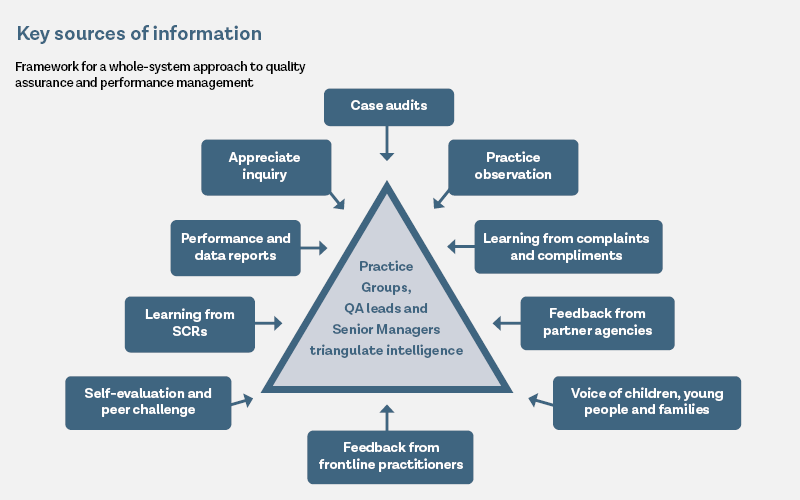The importance of quality assurance
What this means
Accountability, auditing and quality assurance are key levers in ensuring resources are used as well as they could be. How services are assessed on an ongoing basis – and how they are held to account if problems occur – is vital. Outcomes-based accountability should support measuring the outcomes that citizens want, rather than those decided on by organisations.
The More Resources, Better Used group shared experiences of incorrect and poor quality assessments and support plans, or ones that didn’t represent their lives, needs and strengths accurately. This meant they then had to spend a lot of their own time and energy correcting this. If accountability and quality assurance was strengthened, this would be of direct benefit to people with care and support needs.
Part of this, too, is about who measures success, and when. Citizens, who directly experience services, should be given a far greater role in holding services to account, and judging how they are measured.
It’s not about just signing a contract and then feeling that the remit has been fulfilled.
Why accountability and accountability is so important?
In this video, Laura Collins describes why accountability and auditing are so important to ensuring that limited resources are used efficiently:
The research
Forrester (2016), although writing in the context of children’s social care, highlights why quality assurance is fundamental to More Resources, Better Used:
Many well-intentioned rational reforms carried out do not appear to have generated genuine positive changes. For me this is because the reforms focus on the what and when of activity, without sufficient attention to why and almost none on how practice should be carried out. This creates a paradoxical system that is very busy, but where it is often unclear why various activities are being done.
In adult social care, having a strong quality assurance framework in place both supports organisations to measure and evaluate their practice, and also helps cultivate a culture that is committed to learning, continual development and improvement (SCIE, 2021). It’s about recognising where inequalities exist – where there are different outcomes for different groups – and then making a proactive plan to tackle this (Care Quality Commission, 2022).
However, quality assurance often measures service delivery process - the ‘what’ something is spent on, rather than quality of life outcomes for the people who use services (McEwen et al., 2020). Observing practitioners’ behaviour and actively collecting feedback from people with care and support needs helps move beyond the effectiveness of processes to the effectiveness of outcomes (McEwen et al., 2014). This might look like, for example, not only counting how many assessments are completed within a desired timeframe, but undertaking the harder work on evaluating how accurate and effective people felt those assessments were, and how they improved (or did not improve) their quality of life.
Quality assurance and auditing in adult social care, therefore, goes well beyond statistical data. The following diagram outlines some of the sources of information that might be might included:

(Adapted from Bowyer et al., 2018)
What you can do
If you are a leader, or are in a quality assurance role, the Social Care Institute for Excellence has produced a critical review tool to help social care leaders move towards a strength-based, whole-place approach – that crucially, provides a benchmark against which to measure future impact. The tool sets out nine domains to work through:
- Developing a strength-based vision and framework.
- Leading a strength-based approach.
- Developing a strength-based approach to commissioning.
- Working in partnership.
- Effective and enabling systems, processes and information.
- Delivering to a high standard of quality.
- Co-producing with people who draw on services and carers.
- Developing the skills and capabilities of the workforce.
- Understanding and measuring impact.
Within each domain, there are questions, good examples, and links to further resources.
It is vital for you to consistently and meaningfully involve those with care and support needs in your work. Whether things work from an organisational perspective, and whether they work from a person’s perspective, can be two different questions. You may consider not only answering the questions in the practice tool within the organisation, but also with a group of people with care and support needs. Are their responses the same? What lies behind the differences? What action do you need to take based on them?
Further information
Read
Although aimed at an audience related to children’s services, there are many transferrable messages for adult social care in the Research in Practice strategic briefing Building a quality culture in child and family services.
Connect
Think Local Act Personal hosts a Care Markets and Quality Forum, which holds regular events and webinars, and encourages its members to network in their efforts to provide affordable, quality services that people want.
